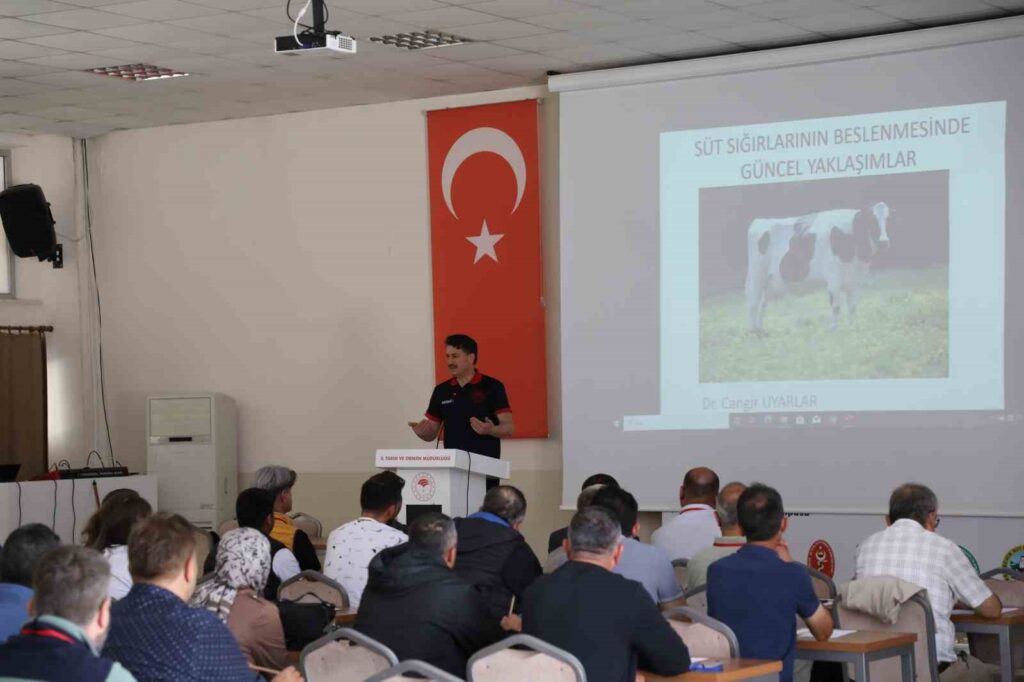Training Workshop on Developing Dairy Cattle Farming in Eskişehir
A training meeting titled “Improving Dairy Farming in Eskişehir” was organized at the Eskişehir Provincial Directorate of Agriculture and Forestry. The meeting was coordinated by the Animal Health and Breeding Branch Directorate, Eskişehir Bilecik Chamber of Veterinary Surgeons, and Eskişehir…

A training meeting on ‘Developing Dairy Cattle Farming in Eskişehir’ was organized at the Eskişehir Provincial Directorate of Agriculture and Forestry. The meeting, held in coordination with the Animal Health and Breeding Branch Directorate, the Eskişehir Bilecik Chamber of Veterinary Surgeons, and with the contributions of the Eskişehir Purebred Cattle Breeders’ Association, was attended by Ender Muhammed Gümüş, the Director of Agriculture and Forestry in Eskişehir, Erdinç Yuva, the President of the Eskişehir Bilecik Chamber of Veterinary Surgeons, Gazi Küçükarslan, the President of the Eskişehir Purebred Cattle Breeders’ Association, Mehmet Yurt, the Branch Manager of Animal Health Breeding and Aquaculture, and dairy farm owners in Eskişehir. The training provided by Prof. Dr. Abuzer Acar focused on ‘Prevention and Management of Calf Diarrhea’ while Dr. Cangir Uyarlar discussed ‘Current Approaches in Feeding Dairy Cows and Important Considerations for Dairy Cattle Nutrition’ emphasizing the importance of conscious and scientific animal feeding for productive and profitable dairy cattle farming. Ender Muhammed Gümüş, the Director of Agriculture and Forestry in Eskişehir, expressed his happiness about the interest of especially women and young breeders in such trainings, thanking the Presidents of the Chamber and Association for their contributions to the meeting. He stated that they mobilize all resources to support any kind of activity and educational efforts that will contribute to the development of livestock farming in Eskişehir. Breeders who expressed their satisfaction with the interactive training through question-answer sessions mentioned that they realized they could engage in more efficient animal husbandry by applying the learned topics in the field.







